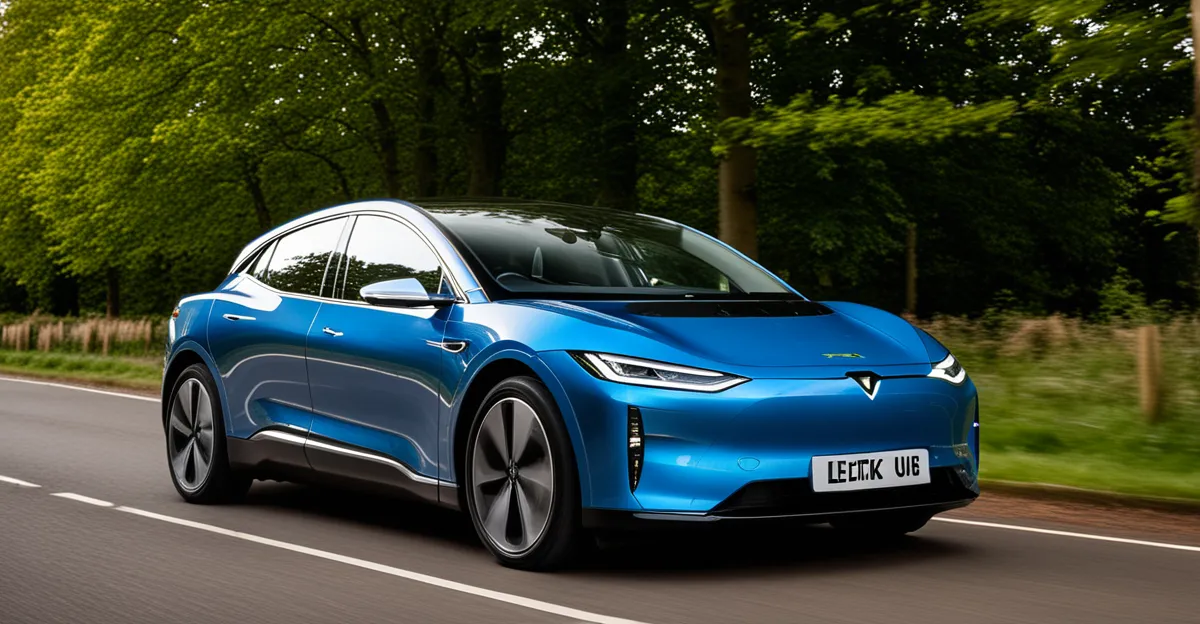Pivotal Technologies Shaping the UK Electric Vehicle Market
The UK electric vehicle market is being transformed by significant electric vehicle technology advancements, particularly in battery development. Battery advancements have a direct impact on the driving range and overall cost of EVs, which are crucial factors influencing consumer adoption. Modern lithium-ion batteries now offer higher energy densities, allowing vehicles to travel longer distances on a single charge, while manufacturing improvements help reduce costs progressively.
Innovations such as solid-state batteries represent a major leap forward. These batteries promise enhanced safety, faster charging times, and greater energy storage capacity compared to traditional lithium-ion cells. Although still in development stages, their eventual introduction could revolutionize the EV sector by drastically improving vehicle performance and affordability.
In parallel : What are the latest advancements in autonomous vehicle technology in the UK?
Another emerging technology reshaping the landscape is wireless charging. This system enables EV owners to charge vehicles without physical connectors—simply by parking over a charging pad—enhancing convenience and user experience. Integration with smart grids also plays a critical role, allowing electric vehicles to balance energy loads efficiently and support renewable energy sources, making the entire ecosystem more sustainable.
Furthermore, connected and autonomous vehicle technology influences EV adoption by offering features such as advanced driver assistance and enhanced navigation. These technologies not only improve safety and efficiency but also optimize charging patterns and power management, fostering greater consumer confidence in EV ownership.
In the same genre : What is the impact of electric vehicles on UK automotive jobs?
Together, these pivotal technologies signal a promising future for the EV market in the UK, driving improved range, decreased costs, and seamless user experiences that encourage widespread adoption.
Government Policies and Regulation Impacting EV Growth
Government policies and regulations play a vital role in accelerating the adoption of electric vehicles in the UK. The UK government EV policy focuses heavily on providing incentives and funding to make EVs more accessible. These policies include purchase grants for electric vehicles, reduced road taxes, and financial support for installing home charging points. Together, these initiatives lower the upfront costs and ongoing expenses associated with EV ownership, directly encouraging consumer uptake.
Environmental regulations in the UK are another critical driver. Strict emissions targets mandate significant reductions in greenhouse gases, pushing the automotive industry toward cleaner technologies. For example, the planned ban on sales of new petrol and diesel cars by 2030 creates a clear timeline that motivates manufacturers and consumers alike to transition to electric alternatives. These regulatory frameworks ensure accountability and establish a market environment where EVs are not just an option but a necessity.
One question often asked is: How effective are these incentives in boosting EV adoption? Studies have shown that purchase grants combined with accessible charging infrastructure make EVs financially competitive with traditional vehicles. This affordability, when paired with strong environmental policies, significantly increases adoption rates. Moreover, ongoing government investment in research and infrastructure helps sustain growth and innovation in the electric vehicle sector.
Overall, UK government EV policy and environmental regulations form a powerful combination, creating a supportive ecosystem that drives the transition toward sustainable transport. This strategic alignment between economic incentives and environmental goals fosters both consumer confidence and industry commitment.
Expansion and Modernisation of EV Charging Infrastructure
The EV charging network UK is rapidly evolving due to significant infrastructure investment aimed at meeting rising demand. Currently, the UK boasts a growing number of public charging points, but to support widespread adoption, expansion efforts focus heavily on increasing the availability and speed of chargers. This includes scaling up the deployment of rapid charging UK stations, which drastically reduce charge times, making electric vehicles more practical for long-distance travel and daily use.
Governments and private sectors are funding extensive projects to integrate fast and ultra-rapid chargers across urban and rural areas. This approach is critical because accessibility to convenient charging directly influences consumer confidence in electric vehicle ownership. When drivers know they can quickly recharge their vehicles on-the-go, concerns over range anxiety diminish, thereby encouraging more people to make the switch.
Moreover, modernisation efforts include integrating the charging network with renewable energy sources and smart grid technology. This not only optimises energy consumption but also supports the UK’s broader sustainability goals by reducing the carbon footprint of EV charging. Combined, these advancements in the EV charging network UK position the market for significant growth, reinforcing infrastructure as a fundamental pillar for the future of electric vehicles in the UK.
Market Trends, Consumer Behaviour, and Industry Investment
Understanding current EV market trends UK reveals a dynamic landscape marked by rapid growth and evolving consumer preferences. Recent data shows substantial year-on-year increases in EV uptake statistics, reflecting heightened awareness and improved affordability. Vehicle availability has expanded significantly, with a broader range of models catering to diverse needs, thereby reducing barriers to entry. Price trends indicate a gradual decrease in total cost of ownership, driven largely by continued battery advancements and economies of scale in manufacturing.
Private sector investments play a pivotal role in accelerating this momentum. Major automakers are committing billions towards electrification, expanding production capacity and innovation pipelines. These investments not only support technology development but also fuel marketing efforts that shift public perceptions, making electric vehicles more attractive to mainstream buyers. Additionally, collaborations between manufacturers, energy providers, and technology firms facilitate integrated solutions such as smarter charging systems and enhanced vehicle connectivity.
Consumer adoption in the UK hinges on several factors. Research shows growing environmental concern and supportive government policies are motivating buyers, alongside practical considerations like driving range and charging infrastructure. However, challenges such as residual range anxiety and upfront costs remain. The industry’s response includes launching more competitively priced models, improving warranty and service networks, and fostering consumer education programs. These combined efforts align closely with future trends EV UK, which anticipate continued growth driven by innovation, policy support, and shifting consumer attitudes.






